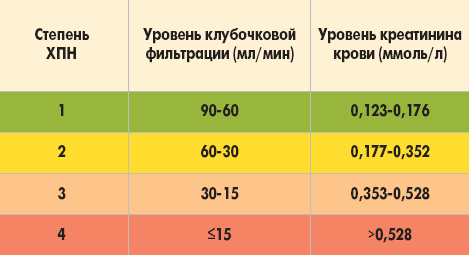Interstitial nephritis: what is it, causes, symptoms, treatment, prognosis
Content
- What is interstitial nephritis?
- Signs and symptoms of interstitial nephritis
- Possible complications
- Causes and risk factors for interstitial nephritis
- Diagnostics of the interstitial nephritis
- Interstitial Nephritis Treatment
- Prophylaxis
- Conclusion
What is interstitial nephritis?
Interstitial nephritis Is a disease characterized by an inflammatory process affecting the kidney tissue, which can lead to a decrease in kidney function and even complete renal failure. An easy way to understand interstitial nephritis is to think of it as an allergic reaction localized to the kidney (although this is an oversimplified explanation).
Signs and symptoms of interstitial nephritis

Interstitial nephritis generally falls into two categories based on the rate at which it occurs and the rate at which kidney function decreases. These two categories are:
- Acute interstitial nephritis (SPE), which is usually a sudden and usually rapid and persistent decline in kidney function.
- Chronic interstitial nephritis (CIN), which is a much more chronic, long-term disease.
Typically, symptoms and signs that tend to be more pronounced in acute interstitial nephritis include:
- fever;
- rashes on the skin;
- pain in the sides;
- an increase in the number in the blood of a special type of leukocytes (the so-called eosinophils);
- level up blood creatinine, a marker, the level of which is usually checked to assess kidney function;
- the presence of increased eosinophils in the urine;
- the presence of red blood cells in the urine (the number may be small enough to be assessed with the naked eye);
- increased leakage of protein into urine. This condition is called "proteinuria" and is considered a non-specific finding of kidney damage.
Although the aforementioned symptoms and signs are considered "classic symptoms", they may not always be seen in all patients.
Possible complications
As a result of the disease, metabolic acidosis due to the fact that the kidneys cannot remove enough acid. The disorder can lead to acute or chronic renal failure or end-stage renal disease chronic kidney disease.
Read also:Ureterocele
Causes and risk factors for interstitial nephritis

As described above, interstitial nephritis is much the same as an inflammatory or allergic reaction in the kidney and is usually caused by certain inflammatory factors. The agent provocateur behaves like an "allergen" that causes an allergic reaction. Medication is a common cause, but other triggers are possible. Here's a quick overview of some of the common triggers for the disease:
- Medicines: These include antibiotics such as penicillins, quinolones (such as ciprofloxacin), conventional over-the-counter pain relievers such as non-steroidal anti-inflammatory drugs (NSAIDs), acid reflux drugs (called proton pump inhibitors), diuretics / diuretics, etc. Why does someone react to a specific medicine, while others feel great, is not entirely understood, but this is due to how the human immune system reacts to one or another provoking factor. This can be understood in the same way as, for example, the fact that not all people are necessarily allergic to peanuts.
- Infectious diseases: Infections are known to cause interstitial nephritis. In theory, any infectious agent can be a stimulating factor, but examples include bacteria such as streptococci, viruses such as Epstein-Barr virus, leptospira and various parasites.
- Autoimmune diseases: Another group of common diseases associated with acute interstitial nephritis. These include the well-known autoimmune diseasessuch as Liebman-Sachs disease or systemic lupus erythematosus (SLE), Sjogren's syndrome, autoimmune thyroiditis (Hashimoto's disease) rheumatoid arthritis and so on ..
- TINU syndrome(tubulointerstitial nephritis with uveitis) Is a specific condition, the pathogenesis of which is unknown. Medicines, infectious agents such as chlamydia, and a certain Chinese herb called Goreisan are considered potential suspects. Patients report flank pain, blood or protein in the urine, and impaired renal function. Uveitis, which is inflammation of certain tissues of the eye, will manifest as eye pain or redness.
Read also:Pyelitis: symptoms and treatment in women and men
Elderly people are the main risk group for SPE. This is because they often take multiple medications. In addition, they may not be sure if they are taking a combination of drugs.
Diagnostics of the interstitial nephritis
A doctor can diagnose possible interstitial nephritis based on clinical symptoms and signs alone. However, as noted above, not all symptoms or signs are necessarily seen in all patients. In the case of drug-induced interstitial nephritis, the patient usually presents with a history of recent initiation drugs, and comparison of the results of a blood test of the kidneys "before and after" can be a potential diagnostic hint.
In cases where the diagnosis is not easy to make or when renal function is severely impaired, a kidney biopsy may be required. This is an invasive test that involves taking and examining a tiny piece of kidney tissue under a microscope.
Interstitial Nephritis Treatment

After a definitive diagnosis of interstitial nephritis has been made, every effort should be made to identify the provoking factor in order to eliminate the cause of the inflammation, if possible. For example, in the case of drug-induced interstitial nephritis, it is important to stop using those drugs, which is the most common first step. If no drugs have been taken, a search should be made for other autoimmune and infectious agents.
Patients with mildly impaired renal function usually only need to stop the aggressive agent. However, if there is a significant inflammatory decline in kidney function, steroid treatment may be beneficial (in this case, therapy may be necessary for 2-3 months). In patients not responding to steroids, another drug called mycophenolate may be considered as an alternative measure.
Prophylaxis
The disease is often impossible to prevent. Avoiding or reducing the use of drugs that can cause this condition can help you reduce your risk. If necessary, your doctor will tell you which medications to stop or reduce the dosage.
Read also:Horseshoe kidney
Conclusion
Intertial nephritis is an acute or chronic inflammation of the kidneys caused by various substances, such as medications, infections, or autoimmune diseases. Kidney damage can range from mild reversible collapse to complete kidney failure. Thus, the first step in treatment is to identify the underlying culprit that triggered the inflammation, but medications such as steroids may also be required.



